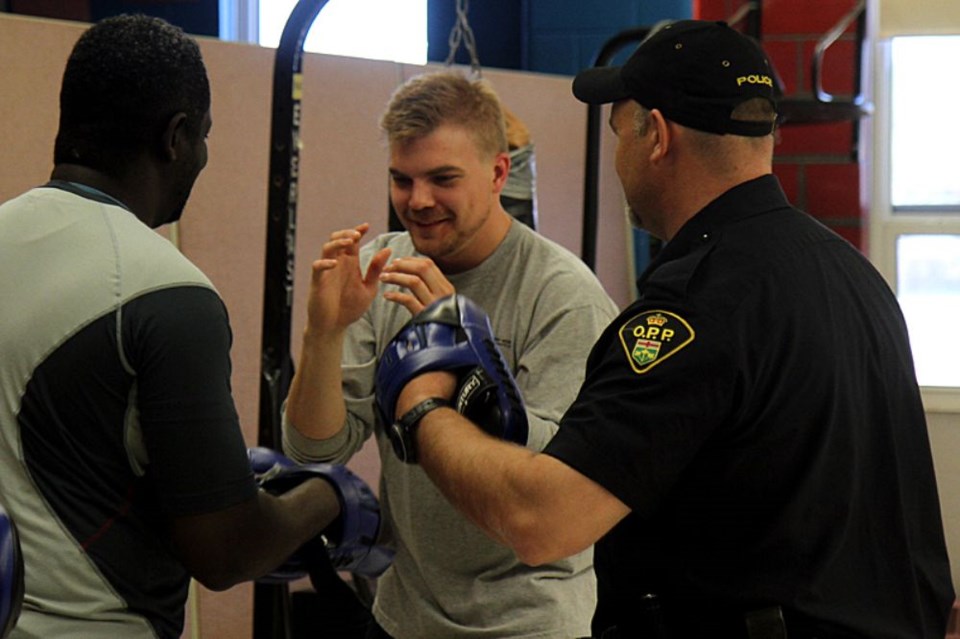As looming staffing shortages affect all sectors in northwestern Ontario, provincial police are not immune to the current climate of choice for job seekers.
Currently, provincial police in Greenstone needs seven more officers to reach a full staffing complement.
When asked if the Greenstone is close to a full complement at a recent council meeting, OPP Sgt. Eric Stewart said, “The short answer is we are nowhere close to having a full complement. We really do well with what we have.”
Stewart told the Greenstone council there have been challenges in terms of staffing, but they are managing to ensure the community is serviced.
Sgt. Daniel Mills, the OPP's senior recruiter for the Northwest Region, clarified that recruitment within the region is fluid with varying complements across the region.
“We have over 350 allocated provincial constable positions in our region,” Mills said.
Mills said staff levels are always changing due to specific factors like new hires, retirements, lateral transfers, and different promotions that create vacancies in certain positions.
“That can change greatly from month to month,” Mills said.
“Using Greenstone as an example, that could change with our next intake. We could have all of those vacancies filled or we can have half of them filled or we can have none of them filled. It depends on a whole bunch of different factors.”
Some of the factors of where OPP focuses on deploying officers are based on statistics and policy. Provincial police track the frequency of calls for service and the complexity of those each call in different areas. They also review municipal contracts to comply with the expectations of the police services boards. The OPP takes a proactive approach to serving far northern communities with a rotational fly-in policing program.
The provincial police force stations new hires where there is a need, but there is a time commitment. After that time commitment is over, officers can choose to stay within the community or move to a different detachment.
"The more isolated the community the shorter the time commitment for our officers usually is,” Mills said.
Smaller rural communities usually have a two-year duration, according to Mills.
Mills said small rural detachments like Armstrong and Pickle Lake have higher turnover rates than places like Dryden and Kenora, with far northern detachments having the highest turnover.
The work-life balance in rural and remote communities often presents a challenge for recruiting and retaining officers, with those who are coming from urban environments elsewhere in the province having to change their lifestyle or living away from family and friends.
“Often those people end up wanting to return because of a number of different reasons like family and different things like that,” Mills said.
Mills said that the OPP recognizes that their officers need to have a work-life balance to ensure that they are effective at their jobs by offering incentive programs to ensure remote positions are being filled despite high turnaround rates.
One such way the OPP accomplishes this is by incentivizing professional development and training opportunities.
“With that turnover comes holes in the services offered by those detachments and then other officers can step in and fill those holes,” said Mills.
The OPP has a wide number of departments for officers to occupy ranging from street crime to emergency response. New hires may be placed with a particular unit once hired, but after acquiring a level of experience, they choose to specialize.
“With myself, for example, I started in Atikokan. I was an Atikokan police officer, and I was amalgamated into the OPP. I’ve had a lot of great opportunities. It’s really about what the individual officer is interested in and how they communicate that to their supervisor and managers to create a professional development plan where they can direct their career," Mills said.
Mills took the opportunity to move into the emergency response unit for 12 years before transitioning into the training unit for 12 years.
“I loved teaching our officers and interacting with our frontline officers, and now I am in recruiting,” said Mills.
The OPP’s uniformed recruitment department in Thunder Bay is utilizing every opportunity available to attract new officers, he added.
“We’re trying to be creative with our retention and recruitment effort in all our communities,” Mills said.
Mills added that one of their biggest recruitment efforts comes from their front line members.
“Conversations they have with the people in the public who ask them questions about their career. I end up being in touch with some of these people, and we have great conversations and they end up in our process as well,” Mills said.
